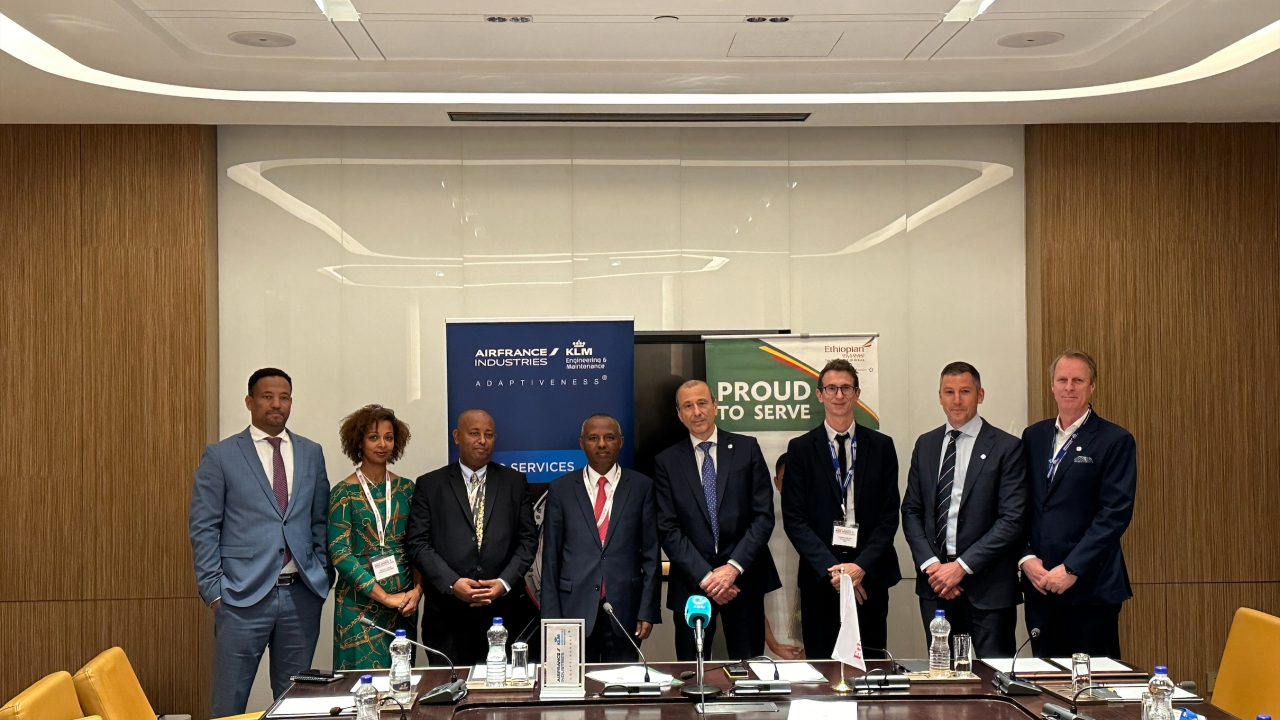MROs winging it in hunt for winning formula
Covid-19 has shone a light – as if it were needed – on problems in Africa’s MRO sector. There are many strategies but no easy answers.

Captain Ado Sanusi: Open to working with the Akwa Ibom State Government to gain more MRO hangar space.
The quandary of state ownership versus private ownership, versus a hybrid model, appears to have Africa’s MRO industry tied in knots as independent operators and national authorities struggle to find a magic formula, as Chuck Grieve reports.
In Nigeria, independent MRO, Aero Contractors, has floated the idea of expanding its operations to unused hangar space at the state-of-the-art MRO complex at Uyo Airport, built three years ago by the Akwa Ibom State Government.
Aero chief executive, Captain Ado Sanusi, told This Day the “economic crunch” from Covid-19 has brought increased demand on his company’s Lagos facility from airlines in Nigeria and elsewhere in west and central Africa. It made sense to use the Akwa Ibom government’s facility: “If they are willing, we can work together because we need more space,” he said.
The move drew cautious support from Nigeria’s Dana Air, an Aero customer. Dana’s chief operating officer, Obi Mbanuzuo, was in favour of Aero’s expansion to Uyo but said he would “never be in support of the government to run an MRO”.
What the private sector needs, he added, is support by government to grow the economy and not government taking over and managing businesses.
But in Kenya, authorities are stepping in to try and save the country’s aviation industry through reorganisation. Kenya’s parliament is considering legislation to combine various players, including the national carrier, Kenya Airways (KQ), under the umbrella of a new state-owned Kenya Aviation Corporation (KAC).
While the move is welcomed by KQ chairman, Michael Joseph, after another loss-making year, observers suggest Kenya’s law-makers may be selling their home industry short by failing to carve out niches for well-known profit centres, particularly MRO and cargo.
They point out that while the National Aviation Management Bill 2020 addresses the functions of the airline as an air operator certificate (AOC), it ignores those of the airline as an approved maintenance organisation (AMO).
“The two distinct certifications are not well understood and the independent role the AMO plays goes largely unknown, due to the fact that it is not a stand-alone entity,” pointed out Stephen Nyamota in Kenya’s Business Daily.
“While the Bill envisions setting up special economic zones, which are a major source of employment, this can only be delivered if the MRO entity within the investment corporation serves the region.”
The authorities in Kenya will be, no doubt, looking across at Addis Ababa and the progress of Ethiopian MRO, which is building its capabilities by a number of means and aims to keep its four hangars at Bole International Airport busy with airframe maintenance for its parent airline and third parties.
It has Boeing and Bombardier approvals for heavy maintenance on common types, and last spring received Airbus approval to carry out maintenance on the A350 XWB fleet in Africa.
Ethiopian teamed up early this year with Sanad Aerotech of Abu Dhabi to set up a centre of excellence for auxiliary power units (APUs) at its home base. The venture intends to start with APUs commonly used on Africa’s workhorses, the Boeing B737 and Airbus A320.
Another international company bringing its expertise to Africa is Lufthansa Technik (LHT), whose subsidiary, Lufthansa Technik Maintenance International (LTMI), was caught up in the widely publicised problems in South Africa by virtue of its relationship with Comair.
Tim Butzmann, the company’s new head of sales for Africa and the Middle East, acknowledged being “involved in that to quite a substantial degree”, but added: “Our expectation is that this business will re-emerge eventually.”
The German company’s South African operations are a “very important cornerstone of our strategy in Africa”, he said. “We are holding fast to what we have built up in South Africa, and we very much expect that once this storm is gone, there will be opportunities that we definitely want to be involved in.”
Overall MRO spend is also “substantial” in the Mediterranean rim of north Africa. “It’s certainly an area that we don’t want to lose out of sight.” Where there is growth, he added, “it’s definitely our ambition to be involved”.
Stay up to date
Subscribe to the free Times Aerospace newsletter and receive the latest content every week. We'll never share your email address.

